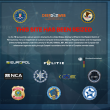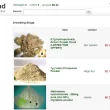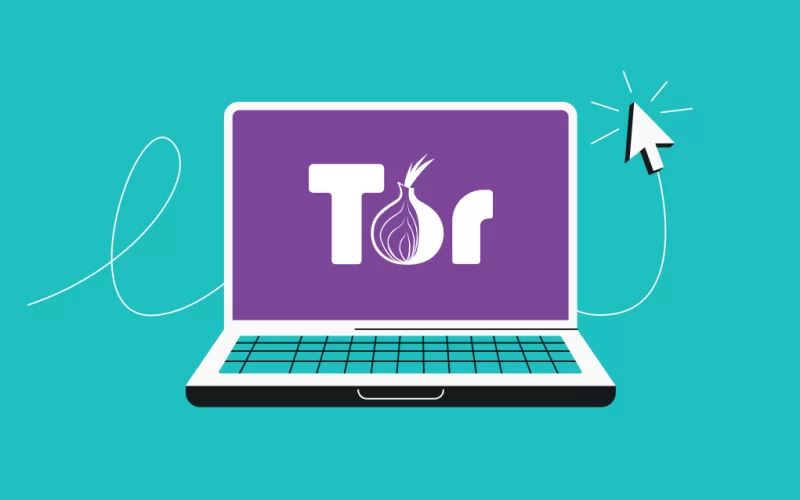The dark web includes websites that are not “indexed.” These websites stay in different parts of the Internet that are private in the results of classic search engines. Such websites are located on the “Surface Web” and can be accessed from the regular search engine.
Since identity theft and crime are among the biggest problems facing consumers and businesses in 2023, I think most people have heard about the “dark web” and “fraud.”

What is the Dark Web?
The World Wide Web consists of three main layers: the Surface, Deep, and Dark Web. You’re most likely using the surface web when you search the web, read news from webpages, or buy sneakers online. Many people are familiar with this part of the Internet. However, you’ll enter the Deep Web once you sign in to your email account. This part contains password-protected information. Your emails, bank accounts, and online health records are all located on the deep web.
The dark web is the stake of the deep web. And unlike the other web layers, the dark web cannot be seen from the normal web browser. Users can access the dark web only with special tools and software. Users of the dark web are anonymous, and their activities and IP addresses are not tracked.
Dark web content resides on the darknet region of the Internet that is not crawled by search engine bots and is available only through browsers such as Tor and certain network settings. To reach the Dark Web, you must use certain software to keep it anonymous.
The dark Internet ensures anonymity by keeping communications private through encryption and routing online content across multiple web servers.
Dark Web vs. Deep Web
You may not be aware, but you use the deep web daily. Deep Web content is usually hidden to secure with user names and passwords or other security measures, from databases to intranets to waiting websites. This includes email, financial and social media accounts, databases run by private and public authorities, and medical and legal documents.
In this sense, the two terms are utilized interchangeably, but the deep and dark web differ.
The Dark Web is a short stake of the Deep Web, and a few things indicate that it is a particular “place” on the Internet.
This collection of websites is located on a network called “Darknet” that requires special software to access them. The darknet uses a complex hierarchical encryption system to anonymize the identity and location of users. This feature allows dark web users to communicate and share data in secret without being tracked by private companies or public agencies, including government and law enforcement.
This confidentiality, combined with the anonymity that cryptocurrencies offer, creates an environment that is convenient for illegal activities.
History of the Dark Web
The dark web originated in 2002 when researchers and scientists at the U.S. Naval Research Institute realized how easily digital actions and contacts can be observed, intercepted, and manipulated. The dark web was born of the need for more secure communication channels in intelligence agencies, but it is now also linked to malicious activities.
The Dark Web resumes to be a helpful tool and business network for many groups worldwide. Some people believe the Dark Web is essential to promote free speech, sustain a free press, and sustain law enforcement and government agencies.
Why do people use the Dark Web?
There are three main reasons why people use the “Dark Web”:
1. Anonymization
There are many reasons to protect your online identity. In some countries, for example, where the government prohibits freedom of the press and political censorship, knowing one’s identity can be dangerous.
Others, such as those who have been cyberstalked or are concerned about the security of online banking, use this data to lower the risk of becoming a victim of crime.
Tor is mostly operated to browse the open web anonymously, and a slim portion of its traffic is linked to Hidden Services.
2. Access to Hidden Services
Hidden Services (also known as Onion Services) are services whose anonymity is protected by Tor for users and the website itself. The site’s IP address cannot be determined, and information about the host, location, and content is hidden. Hidden Services are sometimes referred to as “onion addresses” because the website name often ends in .onion.
Tor itself is not a hidden service, but the site hosted by Tor is a confidential service. Confidential services can be used legally, for example, for whistle-blowing and for the public to share sensitive information, such as knowledge about crimes, without risk of retaliation.
There are also “VIP” sections that may require membership registration (username, password, etc.) and can be accessed only by invitation from the Administrator or by a member-created and Administrator-approved application.
3. Illegal activities
The Dark Web can be operated by people who like to engage in unlawful actions online, such as marketing weapons and drugs. These acts and the websites that provide them are often referred to as “hidden services.
How to Access the Dark Web?
Install a VPN
When trying to access the Dark Web, a VPN service is mandatory. Why? Of course, there is a long arm of the law. Technically, you can surf freely in this internet layer unless you are involved in illegal activities. However, a recent ruling by the U.S. Supreme Court found that casual viewing of the darknet could bring more criticism.
If leaders blocked your darknet connection request, they could have good reason to explore your home and seize the machine you utilized to browse. So, before you play on the dark web, we recommend you download a VPN for yourself.
Download the Tor browser.
To download Tor Browser, a browser that prevents online fingerprinting, avoids website blocking, and prevents trackers from building profiles based on browsing habits, you must visit Tor Project.
Tor Browser uses various layers of encryption to enhance anonymity further and integrates the DuckDuckGo search engine, a system with a focus on not storing or recording search queries. Suppose you want to check the settings and have a more secure experience. In that case, you can also disable potentially dangerous website features, such as fraudulent JavaScript, by selecting the “safer” or “safest” option.
Thousands of volunteers worldwide run Tor Network and maintain a proxy server to protect your identity. You can install Tor Browser for Windows, Mac, Linux, and Ios.
You should use a VPN and Tor together, and for the best protection possible, it is preferable to connect to Tor via a VPN instead of the other way around. In addition, if you are concerned about malware or exploits, you can consider using virtual machines (VMs).
How does the Tor browser work?
When you use Tor to connect to the Internet, your data goes through a number of encryption steps and then goes through a random set of servers called “nodes.”
Each node decrypts the data one layer at the moment to analyze the data and send it to the dark web destination. Thus, the process of “stripping” each layer, encrypted like an onion layer, gave rise to the name “onion router. “With this type of multi-layer encryption, each node (server) in the chain understands which server your data arrived from and which server to ship it to next. But that’s all.
This makes tracking the dark web from beginning to end almost impossible. Make sure to distinguish Tor from a VPN. A VPN uses tunnels to protect your data from incubators. Learn the distinction between operating Tor and a VPN for incognito browsing.
Tor’s encryption system anonymizes your activity and hides the host’s website. You’ll find this ecosystem attractive to people involved in criminal activity.
However, it is necessary to recognize that there are many good reasons to use Tor to explore the dark web.
Look for an onion
To access a dark web aid, you must understand its web address directly. These websites utilize. onion top-level domain names, which are lengthy, accidental mixes of letters and numbers.
Many directories host. onion links and websites, but you should always be careful. From cryptocurrency mixers to drug and fake passport offerings, some will direct you to commercial sites, while others will contain non-commercial and legal content, such as education and training workshops, forums, and personal blogs. Providers of DefCon, ProPublica, CIA, various libraries, and open-source software are also included in this area.
Why is the dark web dangerous? What can we discover on the dark web?
Cybercriminals and other malicious actors are taking advantage of the dark web’s features in a variety of illegal activities. The hot spots for illegal actions on the dark web are marketplaces and platforms where malicious performers trade in illegal products and benefits.
Among the illegal products sold by illegal actors and scammers in such black markets, there are various types of stolen goods and counterfeit data:
Confidential information: This includes your full name, home address, phone digit, date of birth, social security number, hacked email address, and any other personally identifiable details (also known as PII or Personally Identifiable Information).
Financial data. It includes much information such as stolen credit card details, online banking usernames, and passwords, cryptocurrency account credentials, bank and insurance records, etc.
Login data for the online account: It typically consists of a combination of username and password that provides access to various accounts, including social media, rideshare, video streaming services, and paid professional services. There is also a demand for genetic testing and login to anti-virus products.
Medical data.
Includes medical history, prescriptions, biometric information (such as fingerprints and face images), test results, claims information, and other secrets. If exploited, it can lead to medical ID theft or fingerprint ID theft.
Confidential company data: Contains confidential information, including intellectual property, patents, competitive information, and other business details.
Is the dark web dangerous?
The dark web can be a problematic place for a variety of reasons. Because it is often linked with illegal and illegal activities, there is a chance of being scammed on the dark web or experiencing damaging and harmful content.
Also, because the dark web is anonymous, it can be difficult to verify the identity and reliability of people interacting on the dark web.
There is also the risk of being caught by law enforcement when accessing or participating in illegal activities on the dark web. It is important to remember that while access to the dark web is not illegal, much of the activity done on the dark web is illegal, and visiting certain websites on the web can be unlawful in some countries.
How to Secure in the Dark Web?
Browsing the Dark Web is generally not recommended, even in good faith, because you can step out of the way and suddenly encounter illegal materials and sites, and malware. But if you’re browsing the dark web, there are a few things to keep safe:
- Using an anonymous browser like Tor and keeping your security settings at their maximum, you can safely use them, even if your browsing is restricted. This helps protect you from malicious scripts and payloads and makes your device more vulnerable to attack.
- Never download or purchase anything on the dark web. As with the normal web, the dark web can also have malware. However, unlike ordinary websites, there is no secure site. Only download something that you can’t be 100% sure is legal. Some dark web stores may be permitted, but purchasing them isn’t worth the risk.
- Install them as system and software updates are designed to keep you safe! The dark web can take advantage of the update delay and expose you to malware that breaks through unpatched vulnerabilities in the operating system and other software.
- Navigate from a directory. Following a known file structure allows you to stay within the same website and avoid the unexpected.
- Avoid following links. In the dark web, threats are commonplace and can easily lead to illegal encounters. You should be cautious when relating to a link.
- Use a VPN to protect your connection. VPNs such as Hotspot Shield are designed to suppress malware and help protect your device from threats while browsing.
Final Thoughts
The Dark Web helps people maintain their privacy and freely express their opinions. Privacy is essential for many innocent people who stalkers and other criminals threaten. And the growing trend of potential employers to track social media posts has made it difficult to engage in honest public debate.
Finally, the Dark Web is popular with criminals, making it a great way for undercover police cars to communicate.




